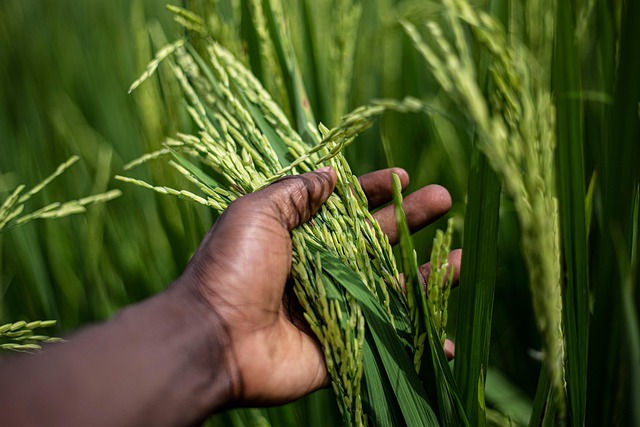Organic Farming: Lessons from the Sikkim Organic Mission for Manipur
- Rajesh A. M., IFS

- Sep 3, 2025
- 3 min read
Rajesh A. M., IFS, Indian Forest Service Officer, Manipur Cadre
Organic farming has become more than just a movement – it is now a necessity for sustainable agriculture, better health, and a cleaner environment. Across India, several states and union territories have introduced policies to promote organic agriculture. Among these, the Sikkim Organic Mission has been one of the most ambitious and widely discussed. While Sikkim has provided valuable lessons in moving towards an organic future, it has also highlighted challenges that must be carefully addressed.

For states like Manipur, where much of the agriculture is already low in chemical input, the opportunity to transition into a fully organic state is both realistic and promising. However, this journey requires a holistic and well-balanced policy—keeping in mind farmers’ incomes, food security, production, productivity, certification, and marketing.
Lessons from the Sikkim Organic Mission
Sikkim achieved the remarkable feat of becoming India’s first 100% organic state. Yet, the journey was not without flaws. High certification costs, initial yield losses, and avoidable expenses highlighted the need for careful planning and long-term strategies. The key takeaway for Manipur is that organic farming success lies not just in policy declaration but in execution, support systems, and market linkages.
Organic Farming: Lessons from the Sikkim Organic Mission for Manipur
Manipur’s Advantage
Manipur is naturally positioned for organic farming:
Low chemical input use: Fertilizer and pesticide consumption is much lower compared to states like Punjab. For example, in 2012–13, Manipur used only 30.9 kg/ha of nutrients compared to Punjab’s 184 kg/ha (2003–04).
Organic districts: In districts like Chandel, Tamenglong, and Ukhrul, most cultivation is already organic by default. Declaring such districts as “organic districts” could be the first step towards a state-wide mission.
High-value crops: With crops like black aromatic rice, oranges, king chilly, and bananas, Manipur already has niche products that can be branded and marketed effectively.
Challenges and Way Forward
1. Balancing Production and Food Security
Organic farming often faces lower productivity during the transition period. Ensuring adequate food grain reserves and introducing cropping intensity improvements (through water harvesting and irrigation management) will help maintain food security.
2. Farmer Support and Training
Farmers must be empowered to make their own organic inputs like compost, vermicompost, bio-pesticides, and bio-fertilizers. Training lead farmers to act as input suppliers can ensure wider benefits.
3. Certification
Third Party Certification is costly but necessary for exports.
Participatory Guarantee System (PGS) is cost-effective and suitable for domestic markets.For Manipur, adopting PGS in the initial phase is more viable.
4. Market and Branding
Most of Manipur’s local consumption is already organic, so the focus must shift to value-added products for external markets. Examples include:
Organic banana chips, juices, jams, and jellies
Processed black rice products
Medicinal and aromatic plant products
Organic meat, mushrooms, and spices
A unique state-owned organic brand—“Orgmanic” (Organic from Manipur)—could help farmers access bigger markets and assure quality for consumers.
5. Research and Education
An institute dedicated to organic farming education, research, extension, and training will strengthen the foundation of Manipur’s organic mission. Establishing soil-testing labs can also reduce costs through site-specific nutrient management.
6. Contract Farming & Partnerships
Encouraging contract farming models will help solve issues of small landholdings, remote access, certification, and assured prices for farmers. Successful examples like “Organic Mandya” in Karnataka show how farmer–entrepreneur partnerships can create sustainable markets.
The Road Ahead: Manipur Organic Mission
Organic farming is not just about growing crops without chemicals—it is about creating a sustainable ecosystem that balances farmer welfare, consumer health, and environmental conservation. For Manipur, the path to becoming an organic state is clear:
Start with low-input districts
Focus on high-value, low-volume crops
Strengthen processing and value addition
Ensure farmer training, certification support, and market intelligence
Build a strong brand identity for organic products
As the Sikkim experience shows, there will be hurdles. But with optimism, planning, and hard work, Manipur can not only achieve organic status but also set an example for the rest of India.
Rajesh A. M., IFS, Indian Forest Service Officer, Manipur Cadre, Joint Resident Commissioner, Government of ManipurManipur Liaison Office, Bengaluru | Manipur Guest Houses, Mumbai & Vellore
#OrganicFarming #SikkimOrganicMission #ManipurOrganicMission #SustainableAgriculture #OrganicIndia #FarmersFirst #OrganicProduce #EcoFriendlyFarming #ValueAddedAgriculture #IFS #AgriculturePolicy








Comments